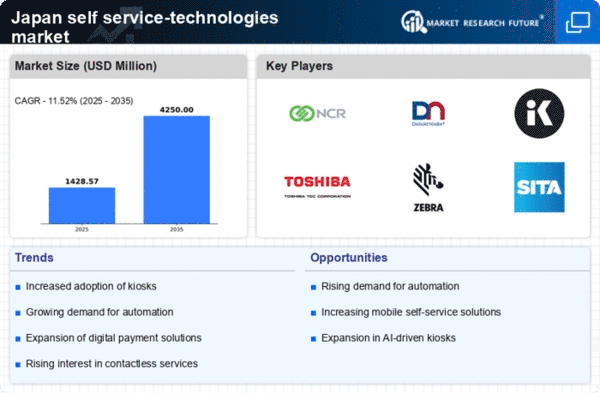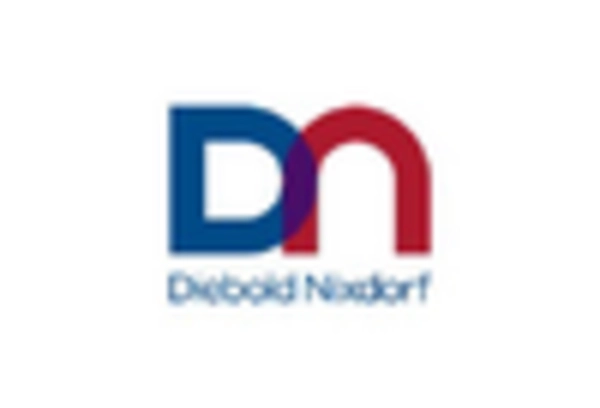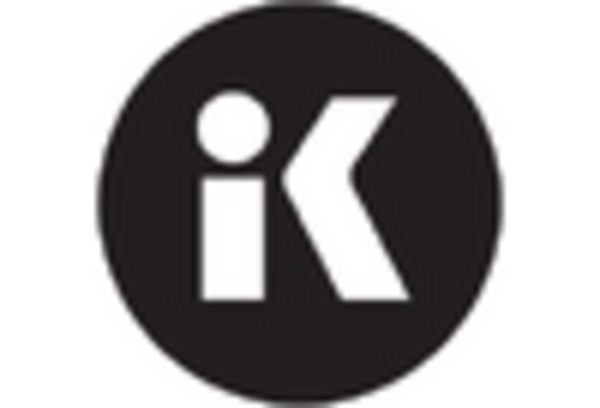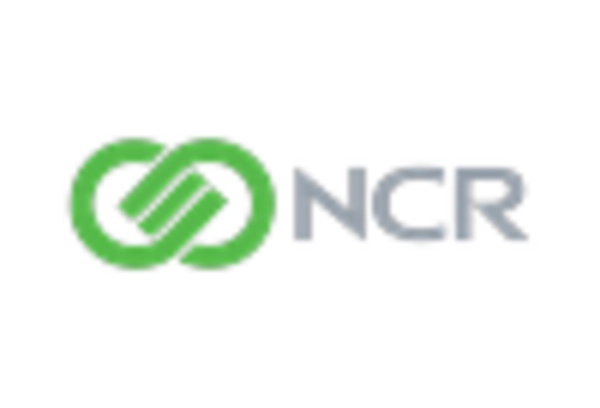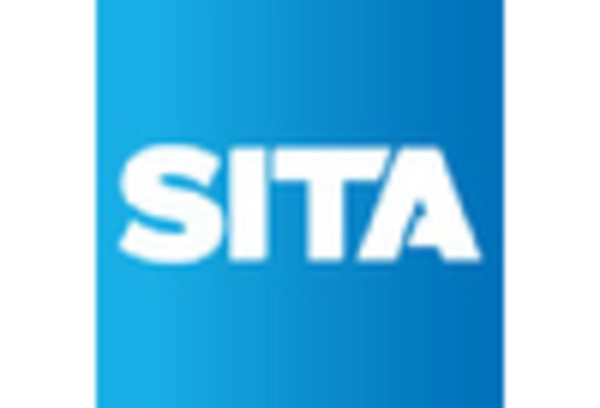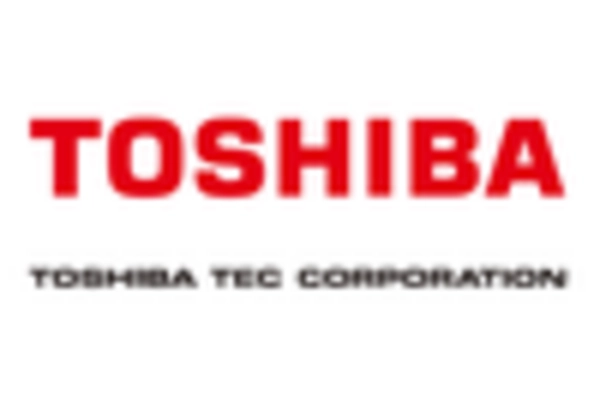Increased Focus on Health and Safety
The heightened focus on health and safety in Japan is influencing the self service-technologies market. Businesses are increasingly adopting self-service solutions to minimize physical contact and enhance hygiene standards. This trend is particularly evident in sectors such as food service and retail, where self-service kiosks and touchless payment systems are being implemented to ensure a safer shopping experience. Data indicates that around 70% of consumers express a preference for contactless solutions, reflecting a growing awareness of health concerns. As a result, the self service-technologies market is likely to see a rise in demand for solutions that prioritize safety and cleanliness, prompting businesses to invest in technologies that align with these consumer preferences.
Shift Towards Digital Transformation
The ongoing shift towards digital transformation across industries is significantly impacting the self service-technologies market in Japan. Businesses are increasingly recognizing the importance of integrating digital solutions to enhance operational efficiency and customer engagement. This transformation is evident in the retail sector, where companies are adopting self-service kiosks and mobile applications to streamline processes and improve the shopping experience. Recent data suggests that approximately 60% of retailers in Japan are investing in digital technologies, indicating a robust commitment to modernization. As organizations continue to embrace digital solutions, the self service-technologies market is likely to expand, driven by the demand for innovative and user-friendly self-service options that align with contemporary consumer expectations.
Rising Consumer Demand for Convenience
The self service-technologies market in Japan is experiencing a notable surge in consumer demand for convenience. As lifestyles become increasingly fast-paced, individuals seek solutions that minimize wait times and enhance efficiency. This trend is reflected in the growing popularity of self-service kiosks in retail and food service sectors, which allow customers to place orders and make payments independently. According to recent data, the adoption of self-service technologies has increased by approximately 30% in urban areas, indicating a shift in consumer behavior. This demand for convenience is likely to drive further innovation and investment in self-service solutions, as businesses strive to meet the expectations of tech-savvy consumers. The self service-technologies market is thus positioned to benefit from this evolving consumer landscape, as companies adapt to provide seamless and user-friendly experiences.
Government Initiatives Supporting Automation
Government initiatives in Japan aimed at promoting automation are playing a crucial role in shaping the self service-technologies market. Policies encouraging the adoption of advanced technologies in various industries, including retail and healthcare, are fostering an environment conducive to innovation. For instance, the Japanese government has allocated substantial funding to support research and development in automation technologies, which is expected to enhance the capabilities of self-service systems. This support is likely to lead to the introduction of more sophisticated self-service solutions, catering to diverse consumer needs. The self service-technologies market stands to gain from these initiatives, as businesses leverage government resources to implement cutting-edge technologies that improve efficiency and customer satisfaction.
Technological Advancements in Payment Systems
Technological advancements in payment systems are significantly influencing the self service-technologies market in Japan. The integration of mobile payment solutions and contactless transactions has transformed how consumers interact with self-service machines. With the rise of digital wallets and NFC technology, customers can now complete transactions swiftly and securely, enhancing their overall experience. Recent statistics indicate that mobile payment usage has surged by over 40% in the last year, reflecting a growing preference for cashless solutions. This shift not only streamlines the payment process but also reduces operational costs for businesses. As a result, the self service-technologies market is likely to see increased investment in advanced payment technologies, further driving the adoption of self-service solutions across various sectors.


